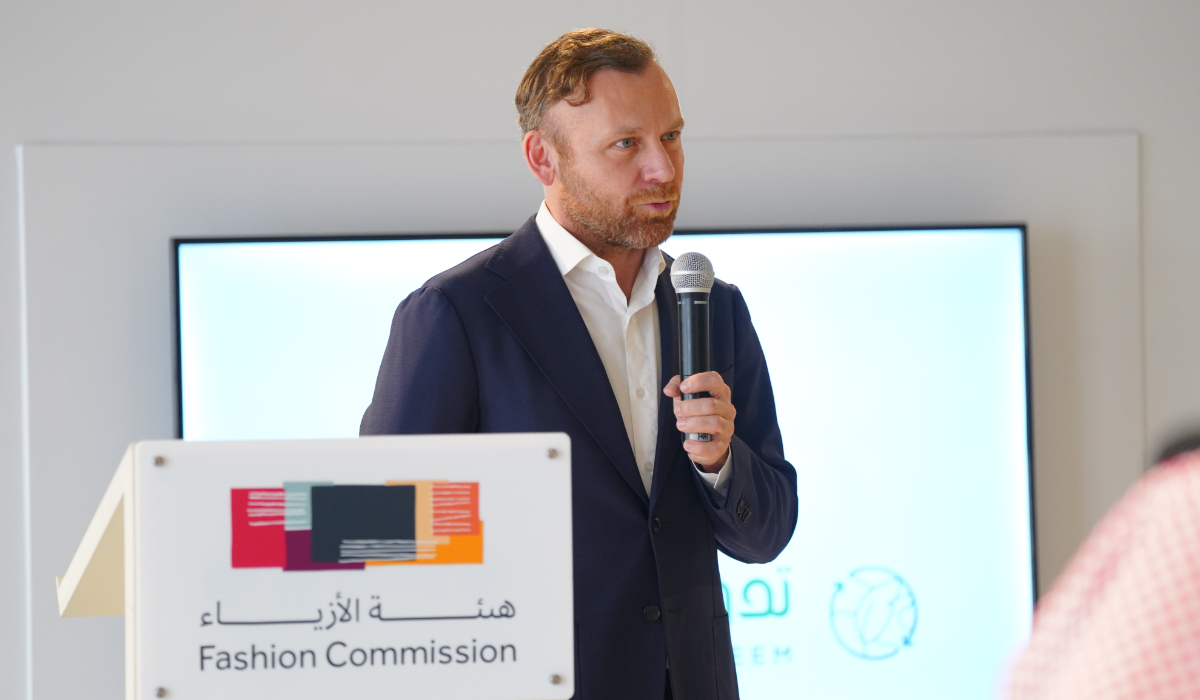JEDDAH: With the arrival of Ramadan and many Muslims from around the world performing Umrah, a compulsory garment for male worshippers is the ihram, a simple, white garment symbolizing purity, unity and devotion.
The ihram is a critical part of the Umrah and Hajj experience, consisting of two pieces of unstitched cloth.
The Ministry of Culture’s Fashion Commission recently introduced its Sustainable Ihram initiative, which focuses on recycling and repurposing used ihrams.

The ihram is a critical part of the Umrah and Hajj experience, consisting of two pieces of unstitched cloth. (Anadolu via Getty Images/SPA)
The project aims to not only honor sacred Islamic traditions but also contribute to the protection of the planet by embracing eco-friendly solutions.
Previously used garments are transformed into new, sustainable ihrams through a circular, textile recycling system.
The initiative is a collaboration with the Saudi Investment Recycling Co. and the eco-fashion firm Tadweem.
HIGHLIGHTS
• Tadweem is a Saudi eco-friendly company focused on improving sustainability in the fashion industry through initiatives such as textile recycling.
• Saudi Arabia’s Fashion Commission and Tadweem installed 336 collection bins in Mina to gather several tonnes of ihrams, and worked with partners to transform them into new fabric.
It aims to promote sustainable practices, raise consumer awareness about fashion recycling, and support the development of a circular textile economy in Saudi Arabia.

The project aims to not only honor sacred Islamic traditions but also contribute to the protection of the planet by embracing eco-friendly solutions. (SPA)
Recognizing that millions of ihrams are manufactured and discarded annually, the commission identified an opportunity to reduce the large volume of textile waste.
Burak Cakmak, CEO of the Saudi Fashion Commission, told Arab News: “Ihram is not the first thing that comes to mind when you think of fashion, but at the same time, it’s a product that is sold and used in volumes, repeated every year, especially during Hajj.”
He continued: “We wanted to create the first circular product in the country, and what better way to start than with ihram, a textile deeply linked to Saudi Arabia’s religious and cultural heritage.”

The ihram is a critical part of the Umrah and Hajj experience, consisting of two pieces of unstitched cloth. (Anadolu via Getty Images/SPA)
“To make this possible, we installed 336 collection bins in Mina, gathered several tonnes of ihrams, and worked with partners to transform them into new fabric, creating a fully circular process,” Cakmak explained.
The collected garments underwent a meticulous recycling process: sorting, cleaning, shredding, and reweaving into fresh ihrams, which “pilgrims can use with a deeper sense of purpose.”
“There is no better way to do this than for your religious pilgrimage, where you want to focus on spirituality, the core values of purity, and ensure that the product you wear represents how pure your thoughts are as you go through that journey,” Cakmak said.
We wanted to create the first circular product in the country, and what better way to start than with ihram, a textile deeply linked to Saudi Arabia’s religious and cultural heritage.
Burak Cakmak, Fashion Commission CEO
Mustafa Bukhari, the CEO of Tadweem, told Arab News about their production process. “Currently, manufacturing is done outside Saudi Arabia, but our plans include moving the manufacturing operations inside the Kingdom.”
Tadweem is a Saudi Arabia eco-friendly company focused on improving sustainability in the fashion industry through initiatives such as textile recycling.
For this project, the ihrams were converted into raw materials in Dubai, sent to Turkiye for manufacturing, and then returned to the Kingdom.

Burak Cakmak, Fashion Commission CEO
“We have ensured that the entire product is made from recycled materials, including the packaging and bags used, with no environmentally harmful materials,” Bukhari said.
He added: “The main material is recycled cotton, which we used in the ihrams and even in the packaging, where we also made the packaging bags from recycled cotton, ensuring the environmental sustainability of the entire product.”
At the Jeddah Hajj and Umrah conference held in January this year, Tadweem showcased how the fabric from recycled ihrams was incorporated into high-quality leather bags.
Priced at SR98 ($25.98), the ihrams are currently available in Madinah, with the distribution to be expanded to Makkah, major airports, and other regions in the future.
They will also be available via a dedicated store for sustainable ihrams in the Kingdom, and at the Islamic Arts Biennale in Jeddah, which runs until May 25.
Cakmak said: “The hope is that we are highlighting the importance of sustainability not just through art and creativity, but through everyday products that people can adopt.
“This is about offering a conscious choice, aligning the spiritual journey with sustainability.”



































